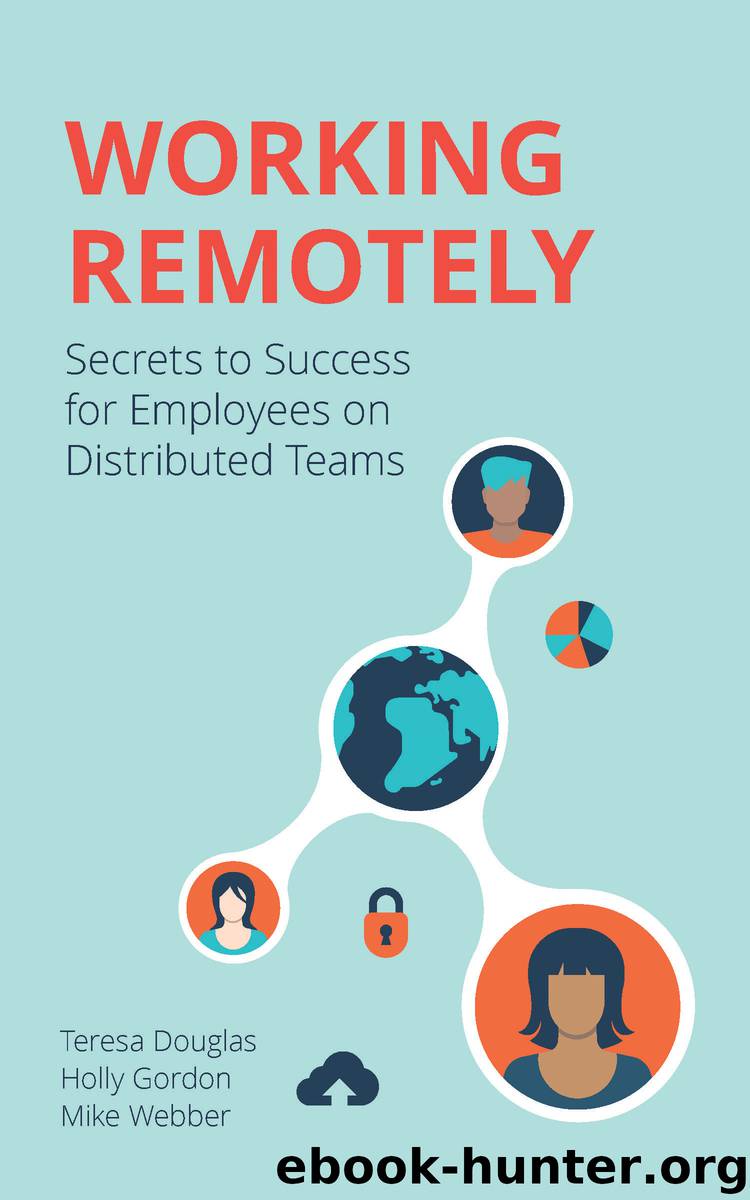Working Remotely by Teresa Douglas

Author:Teresa Douglas
Language: eng
Format: epub
Publisher: Barrons Educational Series
Communicating Urgency and Need—and Following Up
Your work doesn’t exist in a vacuum: At some point over the course of your workweek, you’ll need something from someone, or someone will need something from you. Sometimes the request is easy and your colleagues are willing to help you. Other times, people are busy and resources limited. Communicating the level of urgency of the thing you need—and getting what you need in return—is an art unto itself.
We’ve all encountered that colleague (let’s call him Frantic Frank) who needs everything right now. Perhaps you have even dropped everything to help Frantic Frank get something done, only to find out that the “emergency” was all in his mind. Or maybe you’ve run into his polar opposite, Silent Sally. Silent Sally doesn’t tell you that she is overwhelmed or unable to complete a task until her deadline passes, and her lack of communication means you miss your deadline, too. The Frantic Franks and Silent Sallys of the remote workforce soon develop a reputation as untrustworthy or hard to work with.
To be successful in any career, you should do your best to avoid becoming Frantic Frank or Silent Sally and, instead, identify and manage your interactions with these types of colleagues. This requires more than knowing how to do your job. First, you must understand what you need. Most needs fall into one of four categories (information, access, skills, or authorization), and the category of need determines the level of legwork you can do ahead of time. If you need someone to authorize your budget, for example, you can often collate all the relevant data in an easy-to-digest email or spreadsheet so the authorizing person can simply glance at the information and make a decision. If you need information, you can research whether the information is already housed somewhere else before you reach out to a colleague. Once you’ve done your due diligence, you can feel good about asking for what you need. Your manager, or a more veteran colleague, can often help you determine which department handles the type of request you have and which person in that department can help you. Asking the right person for help is key to actually getting the help you need.
Once you know what you need and who can assist you, you can think about when to approach that person for help. In a traditional office setting, you can swing by someone’s desk and, if she doesn’t look busy, ask for a minute of her time. In the remote workforce, you can’t see people, and you will often have dozens of colleagues in different departments across multiple time zones. In these circumstances, it’s vital to develop a sense of your target’s work rhythm. Is this person busy with payroll on a certain day? Does she reserve mornings for time-sensitive work? Is she out on the road making sales at the end of the month? You might have better results if you wait for a time that is more convenient for her.
Download
This site does not store any files on its server. We only index and link to content provided by other sites. Please contact the content providers to delete copyright contents if any and email us, we'll remove relevant links or contents immediately.
| Ethics | Etiquette |
| Fashion & Image | Health & Stress |
| Motivation & Self-Improvement | Work Life Balance |
| Workplace Culture |
Tools of Titans by Timothy Ferriss(8402)
Change Your Questions, Change Your Life by Marilee Adams(7786)
Deep Work by Cal Newport(7089)
Playing to Win_ How Strategy Really Works by A.G. Lafley & Roger L. Martin(6316)
Man-made Catastrophes and Risk Information Concealment by Dmitry Chernov & Didier Sornette(6022)
Big Magic: Creative Living Beyond Fear by Elizabeth Gilbert(5778)
Digital Minimalism by Cal Newport;(5767)
Ego Is the Enemy by Ryan Holiday(5453)
The Slight Edge by Jeff Olson(5420)
The Motivation Myth by Jeff Haden(5214)
The Laws of Human Nature by Robert Greene(5213)
Stone's Rules by Roger Stone(5089)
Tuesdays with Morrie by Mitch Albom(4788)
Eat That Frog! by Brian Tracy(4543)
Rising Strong by Brene Brown(4465)
Skin in the Game by Nassim Nicholas Taleb(4253)
The Money Culture by Michael Lewis(4211)
Bullshit Jobs by David Graeber(4195)
Skin in the Game: Hidden Asymmetries in Daily Life by Nassim Nicholas Taleb(4009)
